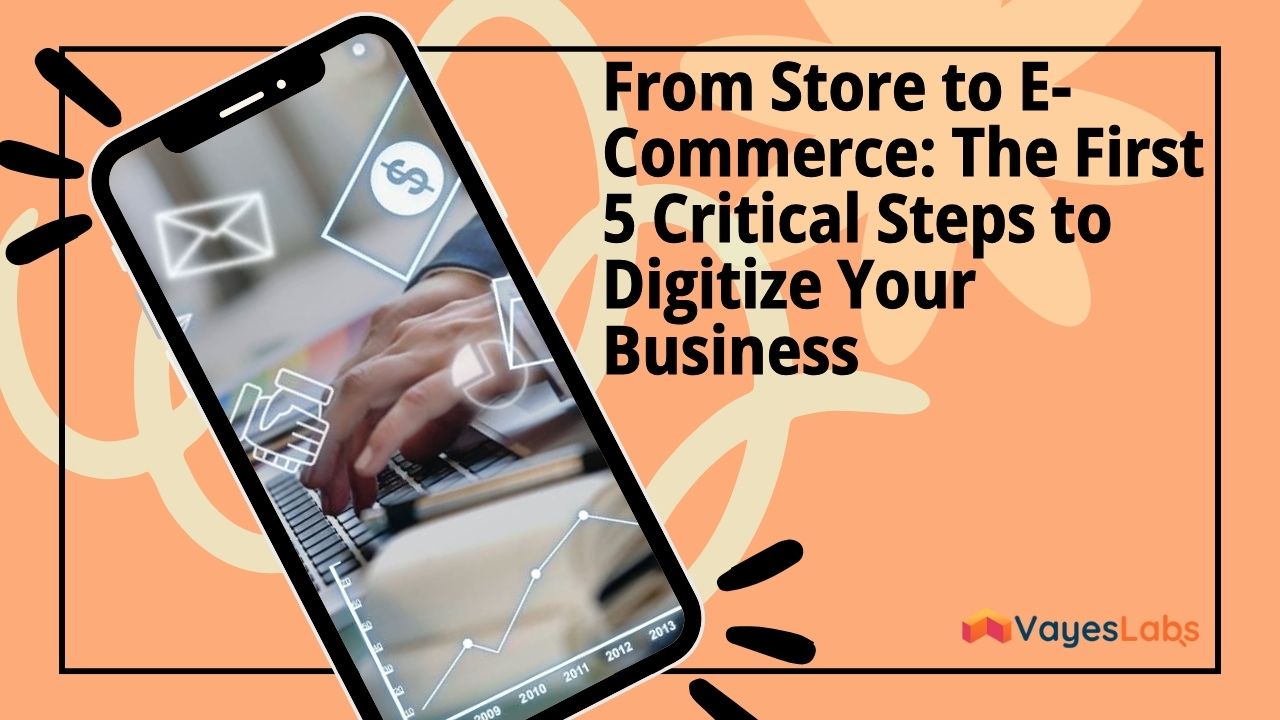Table of Contents
- What Are the First Steps to Move My Store to E-Commerce?
- How Can Small Businesses Start Digital Transformation?
- What Should I Consider When Choosing an E-Commerce Platform?
- Which Software Can Simplify Setting Up an E-Commerce Infrastructure?
- What Are SEO and Digital Marketing Strategies When Opening a Digital Store?
- How Can I Calculate the Return on Investment (ROI) When Transitioning from a Store to E-Commerce?
What Are the First Steps to Take When Moving My Store to E-Commerce?
Moving your store into the digital world requires a well-planned strategy. The first step is to analyze your current business processes and determine which products or services can be offered online. Adapting your product catalogs, inventory information, and pricing strategies to digital platforms is critical at the start. Understanding your target audience and their online shopping habits will help you develop strategies to increase sales.
In this process, VayesLabs provides comprehensive support to accelerate your digital transformation. From web design and SEO optimization to social media management and digital advertising, it offers a wide range of services. VayesLabs’ "Simple," "Pro," and "Level Up" packages include modules that simplify e-commerce processes. Tools such as appointment management, document management, SEO analysis, Google AdPilot advertising, and stock integrations enable you to strengthen your business quickly in the digital space.
The second step is to choose a reliable e-commerce platform and infrastructure. Payment systems, shipping integration, and customer support become priorities. A user-friendly, mobile-optimized store directly impacts the customer experience. Additionally, supporting sales with basic digital marketing tools allows users—both those seeking information and those ready to purchase—to discover your products easily.
How to Start Digital Transformation for Small Businesses
For small businesses, digital transformation aims to simplify processes, increase efficiency, and gain a competitive edge. The first step is to evaluate your current business model and operational processes in detail. Identifying which tasks are suitable for automation reduces workload and minimizes errors. At this stage, e-commerce platforms, CRM systems, accounting, and inventory management software are critical for small businesses. Choosing the right tools helps businesses adapt quickly to digitalization and provides long-term cost savings.
The second stage is to increase your online visibility. Social media management, SEO-friendly content, email marketing, and digital advertising strategies allow you to reach your target audience effectively. Additionally, data analysis shows which products or services are in higher demand, helping you make informed investment decisions. For small businesses, digital transformation is not just about adopting technology—it’s a strategic step to improve customer experience and increase sales opportunities. This approach guides information-seeking users while also motivating purchase intent.
What to Consider When Choosing an E-Commerce Platform
Choosing the right e-commerce platform directly affects your digital store's success. The platform must be user-friendly, provide technical support, and allow easy management. Features like product upload processes, payment system integration, mobile compatibility, speed, and site security are crucial for both customer experience and operational efficiency. Security certifications help customers feel safe during purchases and enhance your business’s professional image.
Next, consider the platform’s cost structure and scalability. As your business grows, the ability to add modules and features increases long-term ROI. Smooth management of inventory, order tracking, and integration processes ensures that both information-seeking users and purchase-intent customers have a seamless experience. Additionally, SEO compatibility and integration with digital marketing tools expand your reach and increase sales potential. Thus, an e-commerce platform becomes not just a sales channel but a strategic investment for growth and profitability.

Which Software Tools Make E-Commerce Infrastructure Easier?
Choosing the right software when building e-commerce infrastructure accelerates workflows and increases efficiency. Integrated software for inventory management, accounting, and customer relations reduces manual errors and automates processes. ERP systems or cloud-based accounting software provide essential convenience for both small and large businesses.
VayesLabs offers modern software solutions that can be integrated into your infrastructure to optimize e-commerce processes. Businesses can manage inventory, customer relations, and data analytics from a single system via the VayesLabs platform. Supported by digital marketing and SEO tools, this infrastructure increases online visibility and helps plan sales strategies more effectively. Proper software and platform integrations allow quick responses to information-seeking users while ensuring smooth transactions for purchase-intent customers. This makes e-commerce operations more efficient, organized, and professional.
SEO and Digital Marketing Strategies When Launching a Digital Store
SEO and digital marketing strategies are essential to increase visibility and maximize sales potential when launching a digital store. Keyword optimization, meta descriptions, internal linking, and user-friendly URLs help achieve higher search engine rankings. Blog content, product descriptions, and guides both inform users and drive organic traffic, enhancing site value.
Digital marketing strategies include social media ads, email campaigns, influencer collaborations, and targeted advertising campaigns. Accurately analyzing your target audience and promoting through the most effective channels increases ROI. VayesLabs provides guidance in digital marketing and SEO for small and medium-sized businesses. Tools for campaign management, retargeting, and data analysis attract purchase-intent users back to your site, boosting sales. SEO and digital marketing thus act as a powerful bridge for both information-seeking and potential customers.
How to Calculate ROI When Transitioning from Store to E-Commerce
Calculating ROI during the transition to e-commerce is critical to measure the effectiveness of digital investments and accurately analyze your business’s financial performance. First, compile all investment costs, including digital store setup, software subscriptions, advertising expenses, logistics, and additional operational costs. This determines the total investment clearly.
Then, compare the revenue, cost savings, and process efficiency generated by this investment to calculate net gain. ROI calculations should also consider metrics like customer acquisition cost (CAC), customer lifetime value (CLV), and conversion rates. These insights reveal which marketing and sales strategies are most profitable. Business owners can strategically optimize budgets, avoid unnecessary expenses, and take steps to enhance digital store performance.
Regular ROI tracking over time shows the value and long-term returns of digital investments. This allows e-commerce strategies to be continuously developed for both short-term profit and sustainable growth.




